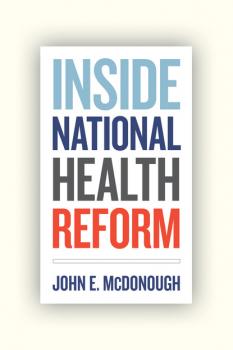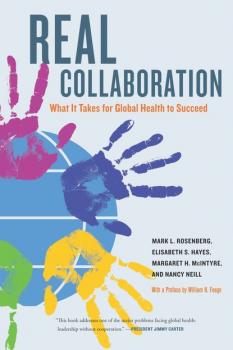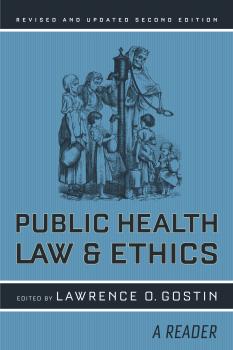ТОП просматриваемых книг сайта:















California/Milbank Books on Health and the Public
Скачать книги из серии California/Milbank Books on Health and the PublicАннотация
This indispensable guide to the Affordable Care Act, our new national health care law, lends an insider’s deep understanding of policy to a lively and absorbing account of the extraordinary—and extraordinarily ambitious—legislative effort to reform the nation’s health care system. Dr. John E. McDonough, DPH, a health policy expert who served as an advisor to the late Senator Edward Kennedy, provides a vivid picture of the intense effort required to bring this legislation into law. McDonough clearly explains the ACA’s inner workings, revealing the rich landscape of the issues, policies, and controversies embedded in the law yet unknown to most Americans. In his account of these historic events, McDonough takes us through the process from the 2008 presidential campaign to the moment in 2010 when President Obama signed the bill into law. At a time when the nation is taking a second look at the ACA, <i>Inside National Health Reform</i> provides the essential information for Americans to make informed judgments about this landmark law.
Аннотация
Essential reading for those who work in global health, this practical handbook focuses on what might be the most important lesson of the last fifty years: that collaboration is the best way to make health resources count for disadvantaged people around the world. Designed as a learning resource to catalyze fresh thinking, <i>Real Collaboration</i> draws from case studies of teams struggling to combat smallpox, river blindness, polio, and other health threats. In honest appraisals, participants share their missteps as well as their successes. Based on these stories, as well as on analyses of many other enterprises, this accessible, engaging book distills the critical factors that can increase the likelihood of success for those who are launching or managing a new partnership.<br /><br />• Features a solutions-oriented approach<br /><br />• Covers leadership skills, management approaches and lessons from experienced project teams<br /><br />• Information is clearly presented in graphics, sidebars, checklists, and other useful features<br /><br />• Supplementary teaching aids including a DVD and additional online resources
Аннотация
A story of courage and risk-taking, <i>House on Fire</i> tells how smallpox, a disease that killed, blinded, and scarred millions over centuries of human history, was completely eradicated in a spectacular triumph of medicine and public health. Part autobiography, part mystery, the story is told by a man who was one of the architects of a radical vaccination scheme that became a key strategy in ending the horrible disease when it was finally contained in India. In House on Fire, William H. Foege describes his own experiences in public health and details the remarkable program that involved people from countries around the world in pursuit of a single objective—eliminating smallpox forever. Rich with the details of everyday life, as well as a few adventures, <i>House on Fire</i> gives an intimate sense of what it is like to work on the ground in some of the world’s most impoverished countries—and tells what it is like to contribute to programs that really do change the world.
Аннотация
In this incisive examination of lead poisoning during the past half century, Gerald Markowitz and David Rosner focus on one of the most contentious and bitter battles in the history of public health. <i>Lead Wars</i> details how the nature of the epidemic has changed and highlights the dilemmas public health agencies face today in terms of prevention strategies and chronic illness linked to low levels of toxic exposure. The authors use the opinion by Maryland’s Court of Appeals—which considered whether researchers at Johns Hopkins University’s prestigious Kennedy Krieger Institute (KKI) engaged in unethical research on 108 African-American children—as a springboard to ask fundamental questions about the practice and future of public health. <i>Lead Wars</i> chronicles the obstacles faced by public health workers in the conservative, pro-business, anti-regulatory climate that took off in the Reagan years and that stymied efforts to eliminate lead from the environments and the bodies of American children.










